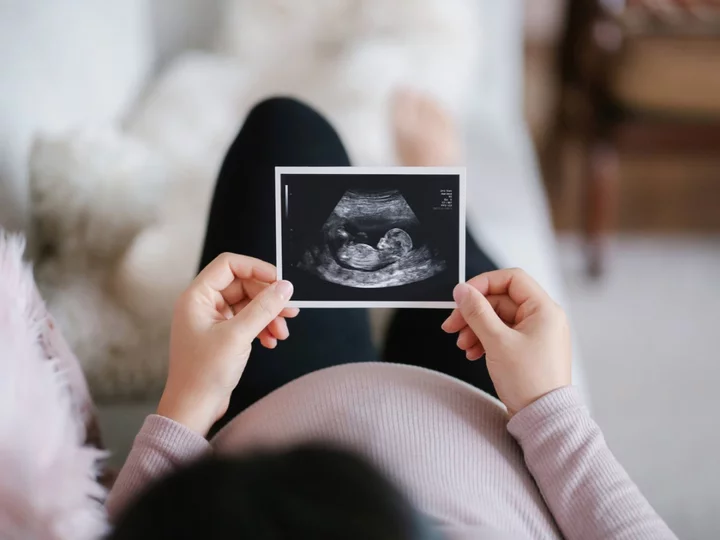
Unborn babies use ‘greedy’ father gene to get more nutrients from mothers, study finds
Unborn babies are in a perpetual nutritional tug-of-war with their mothers due to a “greedy” gene inherited from their fathers, a new study suggests. Scientists from the University of Cambridge have found that foetuses use the gene to “remote-control” their mother into feeding them extra food and control her metabolism. While the mother’s body wants the baby to survive, it needs to keep enough glucose and fats circulating in her system for her own health in order to be able to deliver the child, breastfeed, and reproduce again. Amanda Sferruzzi-Perri, professor in Foetal and Placental Physiology, a Fellow of St John’s College and co-senior author of the paper, said: “It’s the first direct evidence that a gene inherited from the father is signalling to the mother to divert nutrients to the foetus.” Dr Miguel Constancia, MRC investigator based at the Wellcome-MRC Institute of Metabolic Science and co-senior author of the paper, said: “The baby’s remote control system is operated by genes that can be switched on or off depending on whether they are a ‘dad’s’ or ‘mum’s’ gene’, the so-called imprinted genes. “Genes controlled by the father are ‘greedy’ and ‘selfish’ and will tend to manipulate maternal resources for the benefit of the foetuses, so to grow them big and fittest. “Although pregnancy is largely cooperative, there is a big arena for potential conflict between the mother and the baby, with imprinted genes and the placenta thought to play key roles.” The new study looked at how the placenta communicates with the mother through the release of hormones so she can accommodate her baby’s growth. In pregnant mice, scientists selectively altered the signalling cells in the placenta that tell mothers to allocate nutrients to her developing foetuses. The baby’s genes controlled by the father tend to promote foetal growth and those controlled by the mother tend to limit foetal growth, experts say. Professor Sferruzzi-Perri explained: “Those genes from the mother that limit foetal growth are thought to be a mother’s way of ensuring her survival, so she doesn’t have a baby that takes all the nutrients and is too big and challenging to birth. “The mother also has a chance of having subsequent pregnancies potentially with different males in the future to pass on her genes more widely.” In the study researchers deleted the expression of an important gene called Igf2, which provides instructions for making a protein called “Insulin Like Growth Factor Two”. Similar to the hormone insulin, which is responsible for making glucose and controlling its levels in our circulation, the gene promotes foetal growth and plays a key part in the development of tissues including the placenta, liver, and brain. Dr Jorge Lopez-Tello, a lead author of the study based at Cambridge’s department of physiology, development and neuroscience, said: “If the function of Igf2 from the father is switched off in signalling cells, the mother doesn’t make enough amounts of glucose and lipids – fats – available in her circulation. “These nutrients, therefore, reach the foetus in insufficient amounts and the foetus doesn’t grow properly.” The scientists found that deleting the gene also affects production of other hormones that modulate the way the mother’s pancreas produces insulin, and how her liver and other metabolic organs respond. Babies with Igf2 gene defects can be overgrown or growth-stunted. And the researchers say that until now, it was not known that part of the gene’s role is to regulate signalling to the mother to allocate nutrients to the unborn child. The mice studied were smaller at birth and their offspring showed early signs of diabetes and obesity in later life. Professor Sferruzzi-Perri said: “Our research highlights how important the controlled allocation of nutrients to the foetus is for the lifelong health of the offspring, and the direct role the placenta plays. “The placenta is an amazing organ. At the end of pregnancy, the placenta is delivered by the mother, but the memories of how the placenta was functioning leaves a lasting legacy on the way those foetal organs have developed and then how they’re going to function through life.” The findings are published in the Cell Metabolism journal. Reporting by PA Read More It took until my thirties to realise I might not be white Carrie Johnson announces birth of third child with Boris Johnson: ‘Guess which name my husband chose’ How many children does Boris Johnson have? The meaning behind the name of Carrie and Boris Johnson’s third child Emilia Clarke’s brain haemorrhage ‘profoundly changed our lives’, says star’s mother How many children does Boris Johnson have?
1970-01-01 08:00
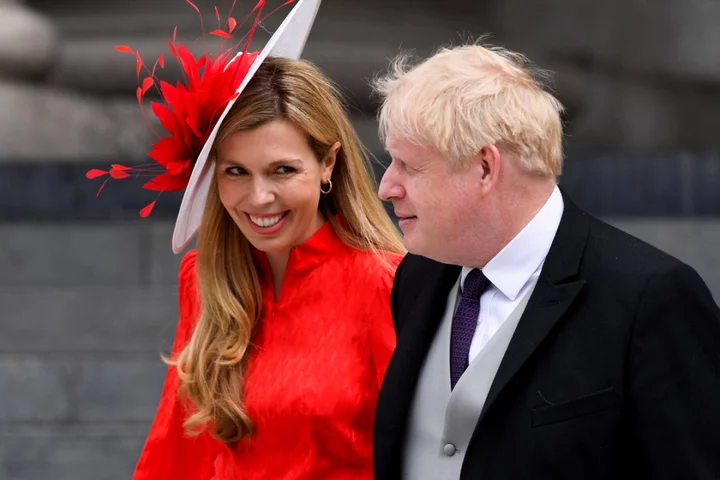
Frank Alfred Odysseus: The meaning behind the name of Carrie and Boris Johnson’s third child
On Tuesday 11 July, Carrie Johnson announced that she and former prime minister Boris Johnson have welcomed their third child together. Frank Alfred Odysseus Johnson was born on 5 July ay 9.15am, Carrie revealed in an Instagram post before joking: “Can you guess which name my husband chose?” Much has already been made about the choice of names on social media, with people quick to point out that the former PM is a fan of the Greek poet Homer and his epic poem The Odyssey, which tells the story Odysseus. But what does the name – and the child’s other names – actually mean? Odysseus takes its moniker from Homer’s poem, which follows the legendary king of the island of Ithaca on his , who is returning home at the end of the 10-year Trojan War. His journey takes an additional 10 years, during which his crewmates perish and he must face a number of threats. In the poem, which covers a decade-long journey, Odysseus is portrayed as exceptionally intelligent and courageous. He is one of the most influential Greek mythology heroes and the name is often associated with wisdom, pride, and heroism. As for the newborn’s first and second names, Frank comes from the Medieval Latin term, “Francus”, which means “free, at liberty, and exempt from service”, according to etymonline.com. It’s also thought to be connected to the Old French word, “franc”, which, similarly, means “not servile”, with other associations including sincere, genuine, open, gracious, generous, worthy, noble, and illustrious. However, Merriam-Webster claims that the name Frank itself comes from the Franks, “a West Germanic people who lived long ago”. The dictionary continues: “In the early Middle Ages the Franks were in power in France. (It was from them that the country got its name, in Latin Francia.) “The Franks eventually merged with the earlier Gaulish and Roman inhabitants, and their name (Francus in Latin) lost its ethnic sense and referred to any inhabitant of Francia who was free, that is, not a slave or bondman.” As for Alfred, the name is believed to mean “elf counsel” and is derived from the Old English name, Ælfræd. It’s a name often associated with wisdom and is most commonly associated with famous Alfreds, including the ninth-century king, Alfred the Great, filmmaker Alfred Hitchcock, and the poet Lord Alfred Tennyson. In 2019, the former PM was accused of misquoting Lord Tennyson while discussing Brexit, pledgingthat Britain would leave the EU on 31 October “do or die, come what may”. The phrase is often linked to Tennyson’s poem, The Charge of the Light Brigade, except the quote is, “Theirs not to reason why, theirs but to do and die”. Read More Carrie Johnson announces birth of third child with Boris Johnson: ‘Guess which name my husband chose’ How many children does Boris Johnson have? Buckingham Palace responds to Joe Biden’s ‘protocol breach’ with King Charles Rishi Sunak to meet King Charles as Truss defends her record - live Johnson was ‘begging people for votes’ in a ‘demeaning’ way, says IDS Welcome, PM Sunak – the last best option to take over from Truss
1970-01-01 08:00

Emilia Clarke’s brain haemorrhage ‘profoundly changed our lives’, says star’s mother
Emilia Clarke’s mother has described how her daughter’s brain haemorrhage changed the Clarke family “in an instant”. Emilia, who played Daenerys Targaryen on Game Of Thrones, and her mother set up a brain injury charity after the star survived two life-threatening brain conditions while she was filming the hit TV show. Jenny Clarke said it feels like her daughter’s brain haemorrhage – a bleed on the brain – “feels like yesterday” even though it was more than a decade ago. The incident, which took place when Emilia was working out in a north London gym in 2011, was “completely out of the blue”, Jenny said. She said her daughter fought to stay conscious even though she was in “the worst pain she could ever imagine”. Emilia, now aged 36, was taken to a hospital in London but medics did not immediately spot that she had suffered a brain haemorrhage and it took “a long time” before she was sent to a specialist hospital where she received life-saving care, Jenny told the PA news agency. Jenny said there needs to be more awareness among medics about brain haemorrhages in young people because the condition is traditionally seen as something that happens to older people. Emilia also had to have a second procedure in 2013 where surgeons in New York had to remove a brain aneurysm which was found through routine check-ups. The Me Before You star and her mother have since set up the charity SameYou which is working to develop better recovery treatment for survivors of brain injury and stroke. Jenny, who is chief executive of the charity, said that rehabilitation after brain injury is “undervalued and under-prioritised” and should be a “key component of universal health coverage”. She said that while people with serious side effects of brain injury – such as mobility or speech and language problems – do get support, there is often little or no help for people who suffer mild to moderate problems. Jenny told PA: “It feels like yesterday to us really, because it was just such a profound shock. “She had just started Game Of Thrones, the first season had been filmed and she had just come back from a press tour. “And then she had her first brain haemorrhage which was completely out of the blue – it was a morning in March and she was in the gym and she suddenly felt this terrible pain in her head – she’s been quoted as saying it was the worst pain she could ever imagine. “She also realised that something was seriously wrong with her because the pain was so intense. “So she did her best, as she was lying semi-unconscious on the floor of the gym, to try and make sure she kept a sense of what was around her and she fought to make sure that she didn’t lose consciousness.” Jenny added: “When she was rushed to a hospital in London, it was very difficult to establish what has happened to her – and that’s also something that we think is very important; maybe there isn’t enough specialist information and training to actually recognise what happens when you have a brain haemorrhage when you’re young. “People expect people to have strokes and brain haemorrhages when they’re older, it’s a problem of older age, but Emilia was 23 when she had her first brain haemorrhage, so people didn’t recognise it as a brain haemorrhage. “So it took a long time before she was admitted to the wonderful Queen Square (the National Hospital for Neurology and Neurosurgery), which is part of University College London Hospitals and literally her life was saved because of an intervention to stop the bleeding. “But it was three weeks in hospital before we knew whether she was going to have another stroke, and whether she would have different health problems as a result of the brain haemorrhage.” Jenny continued: “When it comes completely out of the blue, your life is just changed in an instant. And I must say that our lives have been continuously changed because of it.” After describing the second “open head surgery” in the US, Jenny said: “Those two great big shocks really have profoundly changed all of us as a family.” The comments come as Jenny attended the launch of the World Health Organisation’s (WHO) Rehabilitation Alliance in Geneva – a coalition which is calling on countries to do more for people in need of rehabilitation services. Jenny delivered a speech to the WHO about the power of advocacy, saying: “There is huge power if survivors come together with one voice to demand that integrated rehabilitation is moved up the agenda. “One in three people will experience a brain injury. They are the most powerful advocates – and this meeting is calling for their needs to be heard and action to be taken.” On rehabilitation for brain injury survivors, she told PA: “As a young person… when something like this happens, you absolutely must have as much support as possible and it just doesn’t really exist. “If you have severe consequences of brain injury, of course, there are many places helping people if you’ve got strong long-term, serious conditions, but what we found was, is that you can have mild to moderate brain injury – and that means you don’t have any necessarily physical issues; you don’t have necessarily any speech and language difficulties, but you do always have the trauma that you’ve had the problem – and there is a just a huge lack of awareness that this is important enough to put resources to get it treated.” She added: “Rehabilitation is undervalued and under-prioritised and that’s clearly got to change as a key component of universal health coverage. “It was such a shock when it happened to us, when Emilia had her brain injury. “We’ve had thousands of people write to us, and so it’s not just our own lived experience, there’s just not enough provision, not enough services available. “There is a great unmet need and a gap in service provision after you’ve survived a brain injury, and you’re trying to rebuild your life, particularly if you’re a young adult. “And what we are advocating for is there needs to be a lot more information given to survivors of brain injury, about what’s happened to them and their opportunity to get recovery services. “There is a gap between what survivors and their families say they need and want and what is currently available in many developed countries.” Read More It took until my thirties to realise I might not be white Carrie Johnson announces birth of third child with Boris Johnson: ‘Guess which name my husband chose’ Buckingham Palace responds to Joe Biden’s ‘protocol breach’ with King Charles Charity boss speaks out over ‘traumatic’ encounter with royal aide Ukraine war’s heaviest fight rages in east - follow live
1970-01-01 08:00

What is ‘bed rotting’ and is it actually self-care?
With 3.2 million views of the TikTok tag ‘bed rotting’ and copious videos, it seems Gen Z are embracing a slower pace of life, with self-care happening in bed. Creators are sharing their morning routines and experiences of bed rotting for self-care, but the trend has come under fire for its potential health implications. Content creator Vanessa Hill describes it in her video as: “When you do literally nothing but laying in bed. It is the end of optimisation.” According to psychologist and The Beekeeper House founder and CEO Robert Common, “Bed rotting is the practice of spending an extended amount of time during your normal waking hours, or even a whole day, lying in bed. You could be watching films, scrolling on social media, talking on the phone, eating, or anything you would normally do if you were at home relaxing. “This differs from bed rest to recover from illness or injury, and is often used as a method of dealing with stress or anxiety, or as a self-care tool,” he explains. This is a shunning of hustle culture and productivity in the pursuit of self-care. “Although bed rotting might be the hottest self-care method trending on TikTok, the idea behind it isn’t new,” says Common. “People have been taking ‘duvet days’ for a long time now, and many companies even have policies around this, allowing staff an entitlement to several duvet days per year. “What we are seeing with this trend is more a case of social media driving conversations among young people. It could be especially appealing to Gen Zs, as many report feeling more stressed than other generations, so taking time away from it all to recuperate mentally could be especially appealing,” he explains. But, is it actually self-care or is it doing more harm than good? The benefits There are some positive aspects to this grimly named practice. “Taking some mental downtime to recharge has many benefits,” says Common. “We live in a very fast-paced world, so stepping back, reconnecting with yourself, recharging your batteries and rebuilding some mental and physical energy is always a positive thing to do. In fact, it’s something that more of us should be scheduling into our routines if we can. “Having this downtime puts us in a stronger position to reassess our goals and find the motivation to reach for them, manage our commitments and explore personal interests and hobbies without burning ourselves out,” he explains. Damage to mental health and physical wellbeing “Spending the odd day here and there throughout the month bed rotting is unlikely to do you any damage – quite the reverse. However, as with all things in life, balance is key,” explains Common. For example, “If bed rotting becomes a dominating factor or behaviour in how you spend your free time, this could be an indicator of depression or burnout. If you suspect you’re experiencing these – or other underlying health issues – it’s important to seek appropriate support to help identify the root causes, and find healthy ways to manage them,” he says. Other practices may be more beneficial. “Whilst rest is important for wellbeing, exercise is also a powerful tool for maintaining good mental and physical health, so ultimately, it’s about not being on either extreme of the spectrum.” Impact on sleep Bed rotting can impact the amount and the quality of sleep you get, too. “An important factor of good sleep hygiene is reserving your bed for sleeping only,” Common says. “Watching Netflix, scrolling on your phone and eating are some of the most obvious activities that go hand-in-hand with bed rotting, but it can make it harder to follow a good sleep schedule. “It’s also important to expend enough energy during the day to fall asleep on time, and maximise the benefits that come with proper sleep,” he says. So, while a few duvet days here and there could be counted as self-care, bed rotting too often may leave you worn out and unhappy. Read More Charity boss speaks out over ‘traumatic’ encounter with royal aide Ukraine war’s heaviest fight rages in east - follow live Beekeeping has gone viral – but how easy is it? Women in certain professions ‘may be at higher risk of ovarian cancer’ – study Everything you need to know about sleep in pregnancy
1970-01-01 08:00
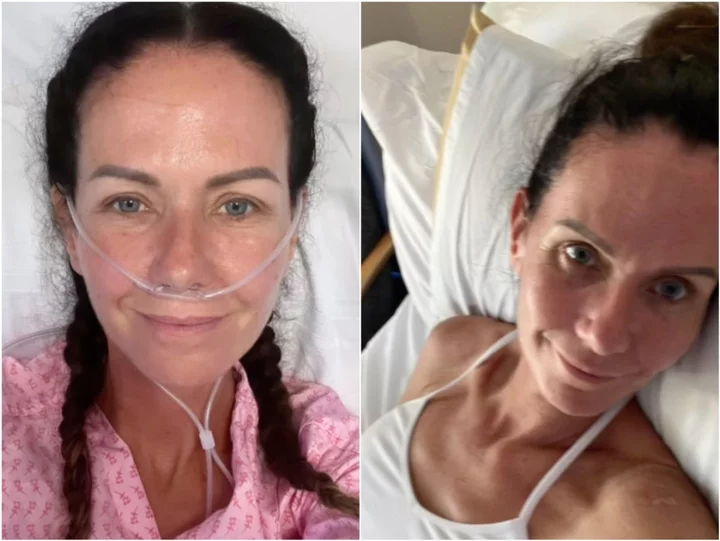
Ben Cohen’s ex-wife Abby says she had only ‘one symptom’ before cancer diagnosis
Ben Cohen’s ex-wife Abby has been diagnosed with cancer. The professional photographer, 44, who shares two children with Cohen, shared a video to her Instagram account documenting her experience with cancer, describing it as the “toughest yet”. In the video, Abby is seen walking into a hospital before undergoing different tests. Several clips show her in a hospital bed, wearing a stoma bag while she is surrounded by her loved ones. Writing on Instagram, Abby recalled that she visited a doctor after having experienced only one symptom. She did not specify where the cancer had been found. “This was and is the toughest yet. I’m unlucky, but lucky, to have been warned only once with a symptom of this terrible illness,” wrote Abby in the post’s caption. She thanked the NHS for “saving” her “life” and taking care of her when she was so “scared and most vulnerable”. The photographer urged her followers to “never ignore” their bodies when warning signs present themselves. “I didn’t [ignore them] and it’s given me a chance to live my new life. In time and with the right treatment, I’m hoping this WILL all be a distant memory for me,” she said. Abby and Ben share twin 15-year-old daughters, Harriette and Isabelle. In the video, the children are seen supporting their mother during her time in hospital. Their father Ben, who is a former England Rugby player, and Abby were married for 11 years before they split in 2014. Cohen went on to start a relationship with his Strictly Come Dancing partner Kristina Rihanoff, whom he was partnered up with during his appearance on the show in 2013. Ben and Kristina welcomed a daughter, Mila, in 2016. The photographer went public with her new partner, David, in 2020. Speaking to MailOnline previously, Abby said that she did not want to be known for her past relationship. “I thought, ‘Everyone still labels me Ben’s ex’ but I’m not that Abby any more. I’m me. I’ve got my two girls. My life. I’ve finally met a really nice man. I want to be known as ‘Abby the good photographer’ or ‘Abby the great mum’. I’m very different. I’m stronger,” she said. Abby has continued to praise Ben as a “fantastic hands-on father”. Read More Woman shares co-worker’s ‘infuriating’ response to her decision to not have children Buckingham Palace responds to Joe Biden’s ‘protocol breach’ with King Charles 5 late summer blooms to plant now Maria Menounos says her tumour ‘doubled’ after first cancer symptoms were overlooked How to check if you have skin cancer: Symptoms and signs to look out Jonnie Irwin makes rare red carpet appearance as he says ‘every day is a gift’
1970-01-01 08:00
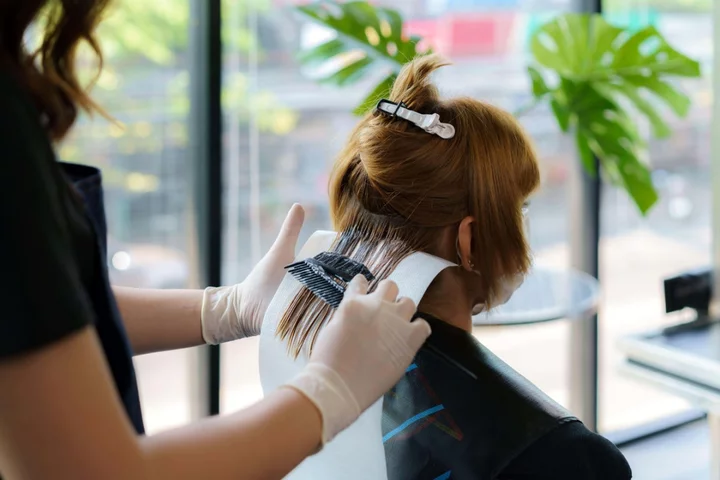
Women in certain professions ‘may be at higher risk of ovarian cancer’ – study
Hairdressers, beauticians and accountants could be at a higher risk of developing ovarian cancer, a new study suggests. Those working in sales, retail, clothing and construction industries could also carry a higher risk according to a new study published in the journal Occupational and Environmental Medicine. But the authors of the study stressed that “inferences from the results are limited” as they called for more work to examine the links between ovarian cancer risk and different occupations. The team, led by academics at the University of Montreal in Canada, examined data on 491 Canadian women with ovarian cancer and compared it with 897 women without disease. We observed associations suggesting that accountancy, hairdressing, sales, sewing and related occupations may be linked to excess risks Report authors The researchers linked occupations to ovarian cancer risk. They also compared this data to the Canadian job-exposure matrix to examine any potential workplace exposures – for example, if they are more likely to come in contact with a certain chemical while at work. After accounting for potentially influential factors, they found that some jobs may be linked to a heightened risk of disease. Those who had worked as a hairdresser, barber or beautician appeared to have a three-fold higher risk. Meanwhile, women who worked in accountancy for a decade were twice as likely to develop the disease while construction workers were almost three times as likely. Shop assistants and sales people had a 45% increased risk while those who make or alter clothes appeared to have an 85% increased risk. The researchers said that those found to have a higher risk were also more likely to be exposed to a number of “agents” including: cosmetic talc, ammonia, hydrogen peroxide, hair dust, synthetic fibres, polyester fibres, organic dyes, and pigments and bleaches. “We observed associations suggesting that accountancy, hairdressing, sales, sewing and related occupations may be linked to excess risks,” the authors wrote. “Further population-based research is needed to evaluate possible hazards for female workers and occupations commonly held by women.” In a linked editorial, academics from the National Cancer Institute in Maryland in the US, point out that women are under-represented in “occupational cancer research studies”. They said the study “reminds us that while the lack of representation of women in occupational cancer studies — and indeed, even potential strategies to address this issue — have been long recognised, there is still a need for improvement in studying women’s occupational risks. “By excluding women, we miss the opportunity to identify risk factors for female-specific cancers, to evaluate whether sex-specific differences in risk occur, and to study exposures occurring in occupations held primarily by women.” Commenting on the study, Kevin McConway, emeritus professor of applied statistics at the Open University, said: “The researchers clearly state that their study was ‘exploratory’ and that it is ‘aimed at generating new hypotheses’. “So, it is certainly not claiming that they have definitely found occupational groups, or exposures to chemicals and other agents, that are associated with ovarian cancer. “Even less are they claiming that being in certain occupations, or being exposed to certain chemicals at work, causes an increased risk of ovarian cancer. “Instead, they aimed at suggesting occupational groups, and agents to which women might be exposed at work, that possibly might be associated with ovarian cancer risk, and they say clearly that further research is needed to ‘give a more solid grounding’ to any conclusions that might be drawn about associations between what women do at work and their risk of getting ovarian cancer.” Read More Charity boss speaks out over ‘traumatic’ encounter with royal aide Ukraine war’s heaviest fight rages in east - follow live Beekeeping has gone viral – but how easy is it? Everything you need to know about sleep in pregnancy Myleene Klass: Government does not deserve power if miscarriage policy unchanged
1970-01-01 08:00
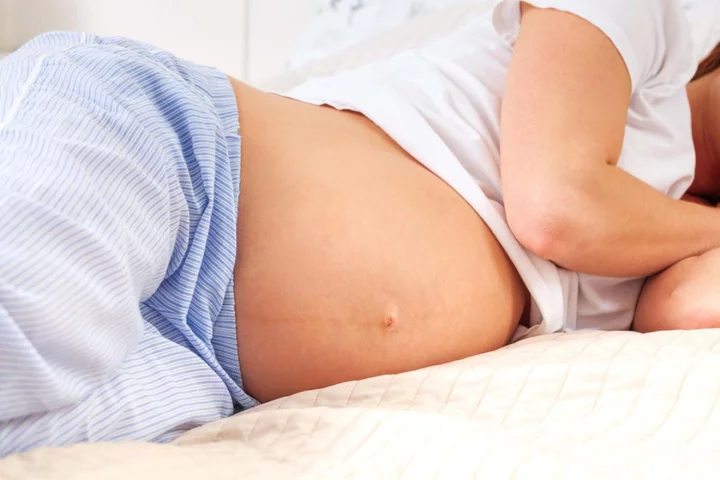
Everything you need to know about sleep in pregnancy
Sleep matters at the best of times, but when you’re growing new life, getting a good night’s rest is incredibly important. But, pregnancy and sleep do not often go hand in hand. “Many people experience changes in their sleep patterns and quality during pregnancy,” says Dr Chun Tang, medical director and GP at Pall Mall Medical in Manchester. “Hormonal fluctuations, physical discomfort, frequent urination and anxiety can contribute to sleep disturbances. Some people may find it more challenging to fall asleep or stay asleep throughout the night, leading to altered sleep-wake cycles and a disrupted circadian rhythm.” Your circadian rhythm will change “During pregnancy, the circadian rhythm, which is the internal biological clock that regulates various physiological processes, undergoes certain changes,” says Tang. “Things like hormonal changes, sleep disruptions, changes in activity and energy levels and increased sensitivity to light, can affect your circadian rhythm.” Warmer body temperature “During pregnancy, basal body temperature (the body’s resting temperature) tends to be slightly elevated, due to hormonal changes, particularly increased levels of progesterone,” he explains. “This can result in a feeling of warmth or increased body heat. Higher basal body temperature can make it uncomfortable to sleep, especially in combination with external factors, like warm weather or a warm sleeping environment.” Some people may also experience night sweats, particularly during the later stages of pregnancy, Tang notes. “Night sweats are episodes of excessive sweating during sleep, which can lead to discomfort, disrupted sleep, and difficulty falling back asleep. Hormonal fluctuations and increased blood flow during pregnancy can contribute to these. “Hormonal changes during pregnancy can also trigger hot flushes, sudden feelings of intense heat and sweating that typically affect the face, neck, and chest. Hot flushes can occur during the day or at night, affecting sleep. But if you have a persistent fever or feel unwell, you should consult your GP,” he says. Vivid dreams “There have been numerous reports of people having more vivid dreams during pregnancy. Hormones, increased emotional sensitivity, and changes in sleep patterns can contribute to the intensity and frequency of dreams,” says Tang. “Pregnancy often brings about a range of emotional and psychological changes. Heightened emotions, anxiety, excitement, and anticipation can influence the content and intensity of dreams. Dreams may reflect the concerns, hopes, and fears associated with pregnancy and impending motherhood. “If vivid dreams are causing distress or affecting sleep quality, practising good sleep hygiene and relaxation techniques before bed may help promote better sleep. Maintaining a comfortable sleep environment, establishing a regular sleep routine, managing stress levels, and seeking support from healthcare providers can also be beneficial,” he adds. Physical discomfort Getting bigger may not be comfortable, particularly in the later months. As the pregnancy progresses, physical discomfort and increased fatigue may affect activity levels. Some people may experience increased daytime sleepiness, while others may find it harder to engage in physical activities, due to the changes associated with pregnancy. “The third trimester can present more pronounced sleep challenges, due to the changes and preparation for labour. Some common sleep difficulties during this trimester include discomfort and difficulty finding a comfortable position, frequent urination, heartburn or reflux, and restless leg syndrome,” Tang says. What can help? Yoga can be beneficial, suggests Tang: “Prenatal yoga is specifically designed to support the physical and emotional wellbeing of expectant mothers throughout their pregnancy. It involves gentle stretching, deep breathing exercises, mindfulness practices and relaxation techniques tailored to the needs and safety considerations of pregnancy. “These practices can be valuable for managing anxiety, promoting better sleep, and fostering a sense of calm and balance during pregnancy.”
1970-01-01 08:00
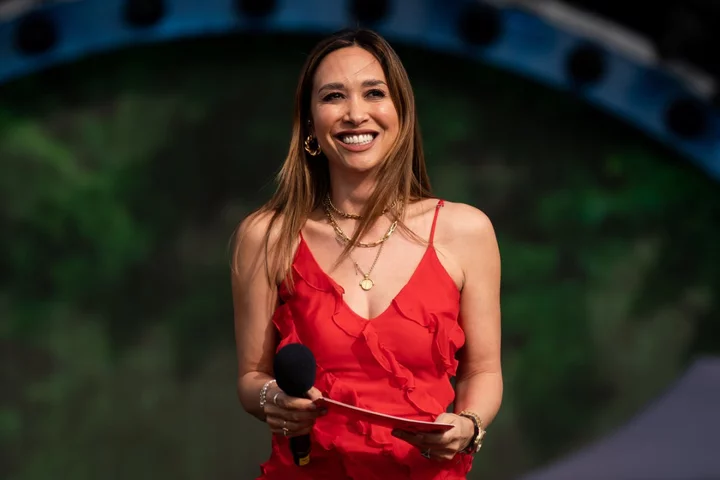
Myleene Klass says government does not deserve power if miscarriage policy unchanged
Myleene Klass has said that if the government does not implement changes to the way woman are treated following miscarriages then it no longer “deserves power”. The former Hear’Say singer met with the Minister for Women’s Health, Maria Caulfield, on Monday (10 July) at the Tommy’s National Centre for Miscarriage Research in Birmingham. Klass, who had previously been outspoken about her four miscarriages, organised the visit at the pregnancy charity’s centre – located in Birmingham Women’s Hospital which also contains an early pregnancy unit – alongside Labour MP Olivia Blake. The 45-year-old presenter urged the government to make sure women receive medical intervention after every miscarriage, not just three, 24 hours specialist care and support for pregnancy and for data to be collected to understand the scale of the issue. According to the NHS website, if a woman has had three or more miscarriages in a row then further tests will be given to understand the cause. Klass told the PA news agency that a soon to be published pregnancy loss review, which looks at improving NHS gynaecology and maternity care, could provide a “massive” change if implemented. She said: “If the policy (does) include these changes, the face of women’s health care is going to change unrecognizably and it will be a wonderful time for our children and our children’s children to know that we made a movement happen that actually protected women’s health.” When asked how she would feel if there are no changes, Klass said: “A health secretary and a health department and a government that doesn’t look after the people, that is in a position and empowered to do so, doesn’t deserve to hold (onto) that power.” The mother to daughters Ava and Hero and son Apollo said she has been “very frustrated” after a “real David and Goliath” battle with the government. She said: “I do find that women’s health is so far down on the agenda and it’s so misogynistic as to why it really is, from the tablets we are given to take, all the way through to the treatment that we receive, or rather the lack of treatment that we receive. “I think it’s pretty evident that we were told to just put up and shut up and that is not the world that we live in anymore.” Klass added that care for women going through miscarriages is not addressed as it is “taboo” and “makes people uncomfortable”. She said: “It’s so cruel when you have experienced the process of it, I’ve never done so much paperwork. “A little baby that never existed and yet the paperwork is excessive and you’re asking a woman to sign away… what do they refer to it as? The products of pregnancy, even our paperwork is incorrect.” Klass also said that the difference between women receiving care in an early pregnancy unit are a “lottery” as in certain parts of the country the centres can be closed during certain hours and at the weekend. She added: “So this is something that is actually costing the economy more, because people are being sent to the wrong places and really desperately suffering with their PTSD.” Klass said that one treatment, a steroid hormone called progesterone, should be administered to more women at risk and GPs should receive more training about the drug. Klass said: “If there is still a heartbeat and you’re bleeding (and) you are given progesterone, you’ve got a chance, I know this better than anybody because that’s how I had my son. “Can you imagine if you do suffer a miscarriage you sometimes or very often have to wait for your GP to then sign you off to get the secondary scan? That means… you have to wait to have your baby removed.” Klass said she hopes things have “shifted” after Caulfield’s visit. In a statement, the minister said the work done by Tommy’s is “so important” as pregnancy loss can be “hugely devastating and traumatic” and thanked those at the centre for sharing their stories. Caulfield said: “I’ll keep working to ensure women and their families can access the best possible care following complications in pregnancy. “The independent review into pregnancy loss – the findings of which will be published shortly – will consider how we can improve care so women and families receive the support they need.” Read More It took until my thirties to realise I might not be white Woman exits plane after tirade about passenger who is ‘not real’: ‘I’m not about to be Final Destination-ed’ ‘We call them Picky Bits’: Nigella Lawson responds to viral ‘Girl Dinner’ trend Charity boss speaks out over ‘traumatic’ encounter with royal aide Ukraine war’s heaviest fight rages in east - follow live
1970-01-01 08:00
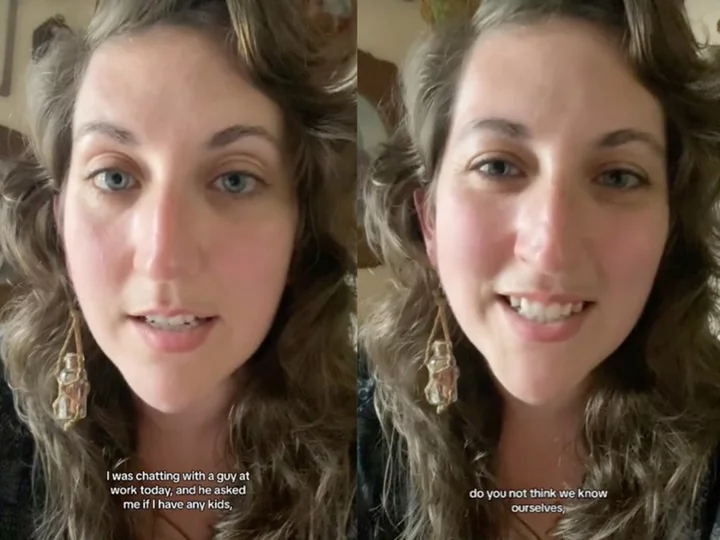
Woman shares male coworker’s ‘infuriating’ response to her decision to not have children
A woman has shared her male colleague’s “infuriating” response when she informed him of her decision to be childfree. Earlier this week, TikTok user @honeyandmud went viral when she recounted the conversation she had with her male coworker, who seemingly couldn’t wrap his head around her choice to not have children. “I was chatting with a guy at work today and he asked me if I have any kids, to which I responded with: ‘Oh no, I’m not gonna have children,’” she began the TikTok, which has since been viewed more than 230,000 times. Her coworker laughed off her response and replied: “You say that now, but never say never,” according to the TikToker. When she further stressed that she knew “for a fact” that she was never going to have children, she said her colleague seemed surprised by her comment, and asked why she didn’t want kids. “I’ve known since I was a child that I don’t want to have kids,” she explained. “I’m 35 years old now and that hasn’t changed and I really don’t see that changing in the future, so yeah, I can confidently say I don’t want kids and I’m never going to have them.” However, her justification didn’t seem to please the male colleague. “Even after that, he still replies with: ‘Well, you never know,’” she said. In the viral video, the woman went on to explain why her frustrating interaction with her coworker was a “common theme” among people who choose to be childfree, or not to have children. @honeyandmud i am so happy you love being a parent, but i promise you that i would not. trust that i can understand that about myself. #childfree #childfreebychoice #childfreemillennial #letusbe #storytime ♬ original sound - honeyandmud “Anytime somebody is choosing to be childfree, there are always people – usually parents – who are like: ‘You’ll regret that one day,’ like they know the person better than the person knows themselves,” she shared. “Do you not think we know ourselves? Do you not think we understand this decision and have thought about this decision and have our reasons why we don’t want to be a parent or bring a child into this world?” “Trust that I know myself, alright?” she added, along with the caption: “I am so happy you love being a parent, but I promise you that I would not. Trust that I can understand that about myself.” The TikToker’s interaction with her male colleague struck a chord for many childfree people in the comments, who took the opportunity to share just some of the many judgemental comments they’ve received because of their decision to not have children. “I chose to be childfree and at 44, STILL get the ‘You never know,’” one person revealed. “I’ll be 40 in a few months and people still want to tell me never say never,” said someone else. “They are still trying to convince me even after I voluntarily paid money to be permanently steralised,” a third user wrote, while another person said: “It’s the most infuriating conversation to have because they act like they know you better than you know you.” “Voluntary childlessness” – also called being childfree – has grown in popularity among US adults in recent years. In November 2021, a survey from the Pew Research Center found that 44 per cent of adults said it is “not too or not at all likely” that they will have children someday, a seven per cent increase from 2018. While there was no single reason why a number of Americans have lost interest in becoming a parent, some survey respondents cited financial burdens or the unsettling “state of the world” as reasons to remain child-free. Earlier this year, childfree TikToker Jackie Dives was praised by viewers for showing “what a life without children can look like”. “I knew in my heart and in my gut that I didn’t want to be a parent,” Dives said in her viral video last March. She added that it was difficult for her to imagine what her life could be without children because there weren’t examples of child-free women “in media or pop culture”. “I had no idea what my life would look like if I didn’t go down the path that everyone expected me to go down,” Dives explained. “It felt really lonely and strange, and I had to go seek out other women who had also made that choice.” Meanwhile, another TikToker sparked a conversation about the sexist double standards that childfree women face after she claimed that her OB-GYN refused to consider her for a tubal ligation to prevent pregnancy. The Independent has contacted @honeyandmud for comment. Read More ‘Child-free’ woman applauded for sharing videos showing ‘what a life without children can look like’ Stop shouting at babies on planes – nobody has the right to a ‘child-free’ existence Woman, 22, sparks debate about medical freedom after doctor refused to sterilise her: ‘I just don’t want kids!’ Schoolboy almost dies from swallowing magnets for TikTok challenge Woman shares honest review of New York City apartment TikTok mom slammed after making 5-year-old son run in 104 degree heat
1970-01-01 08:00
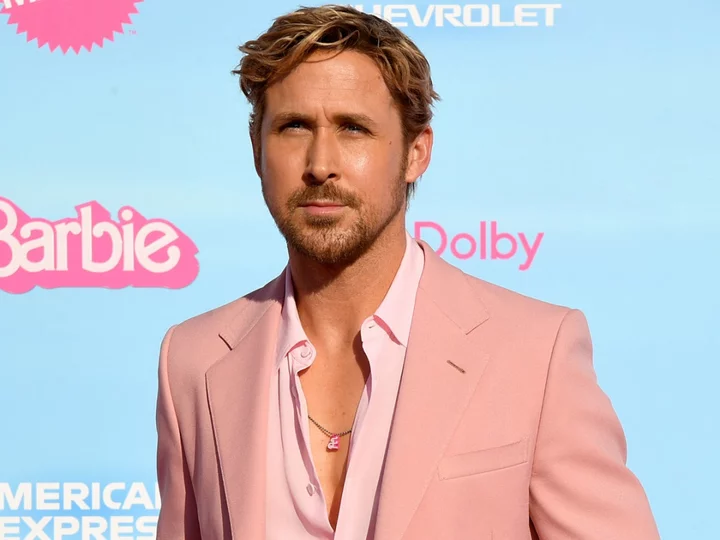
Ryan Gosling says his daughters were ‘huge inspiration’ for his role as Ken in Barbie movie
Ryan Gosling has revealed that his daughters, who he shares with longtime partner Eva Mendes, were a “huge inspiration” for his role as Ken in the upcoming Barbie movie. The 42-year-old spoke about his children, Esmeralda, eight, and Amada, seven, during an interview with Entertainment Tonight on Sunday, while attending the premiere of Barbie in Los Angeles. During the conversation, he shared his daughters’ candid thoughts about his role in the film, which features Margot Robbie as the titular Barbie. “It was, I think, weird enough for them that I played Ken anyway,” he said. “That I might just hold off on them seeing the full Ken-ergy.” However, according to Gosling, his children have not only seen some of Barbie, but they also “helped” him create his character. “They’ve seen a lot pieces of [the film], and helped me a lot with it,” he said. “They were a huge inspiration for me.” When asked if his daughters thought the new movie was funny, the Notebook star quipped: “Yeah, unless it wasn’t. And then I worked on it…They’re brilliant comedians.” While at the Barbie premiere on Sunday, Gosling also gave a subtle shoutout to Mendes with his outfit. The actor walked the pink carpet in a pink Gucci suit, which he accessorised with a chain necklace that had the letter “E”, which stood for Eva, dangling from it. The typeface on the necklace was used for the film. While Mendes wasn’t at the premiere on Sunday, she has previously revealed that she would rather avoid doing press to spend time with her children. “What people don’t know about me is that I love being home,” she said in an interview with Shape in 2017. “Instead of hitting the red carpet, I’d rather be with our girls.” In April, Mendes also revealed why she would not be joining Gosling on the pink carpet, with the Hitch star explaining that she and her partner “don’t do those things together”. Last month, Gosling, who’s been dating Mendes since 2011, shared some rare comments about fatherhood. During his cover story interview with GQ, he revealed that, prior to his relationship with Mendes, he didn’t think much about becoming a father. However, he confessed that this all changed when Mendes told him she was pregnant. “Eva said she was pregnant,” he recalled. “I would never want to go back, you know? I’m glad I didn’t have control over my destiny in that way, because it was so much better than I ever had dreamed for myself.” Elsewhere in the interview, Gosling clarified previous comments he made about the moment Mendes learned she was pregnant. While he maintained that he “wasn’t thinking about kids” before they met, Gosling said: “After I met Eva, I realised that I just didn’t want to have kids without her.” “I was looking for her, you know?” he added. When asked if he was aware that he was searching all his life for his current partner, Gosling replied: “No. But it all makes sense now.” While they have been more open about their relationship in recent years, Gosling and Mendes have still kept their children and family life largely out of the spotlight. Read More Ryan Gosling fans praise actor’s subtle nod to wife Eva Mendes at Barbie premiere Margot Robbie hits Barbie red carpet in 1960s Mattel-inspired gown Margot Robbie, an Australian, briefly forgets what ‘barbie’ means in Australia Margot Robbie hits Barbie red carpet in 1960s Mattel-inspired gown Ryan Gosling fans praise actor’s subtle nod to wife Eva Mendes at Barbie premiere All of the best looks from the Barbie world premiere
1970-01-01 08:00
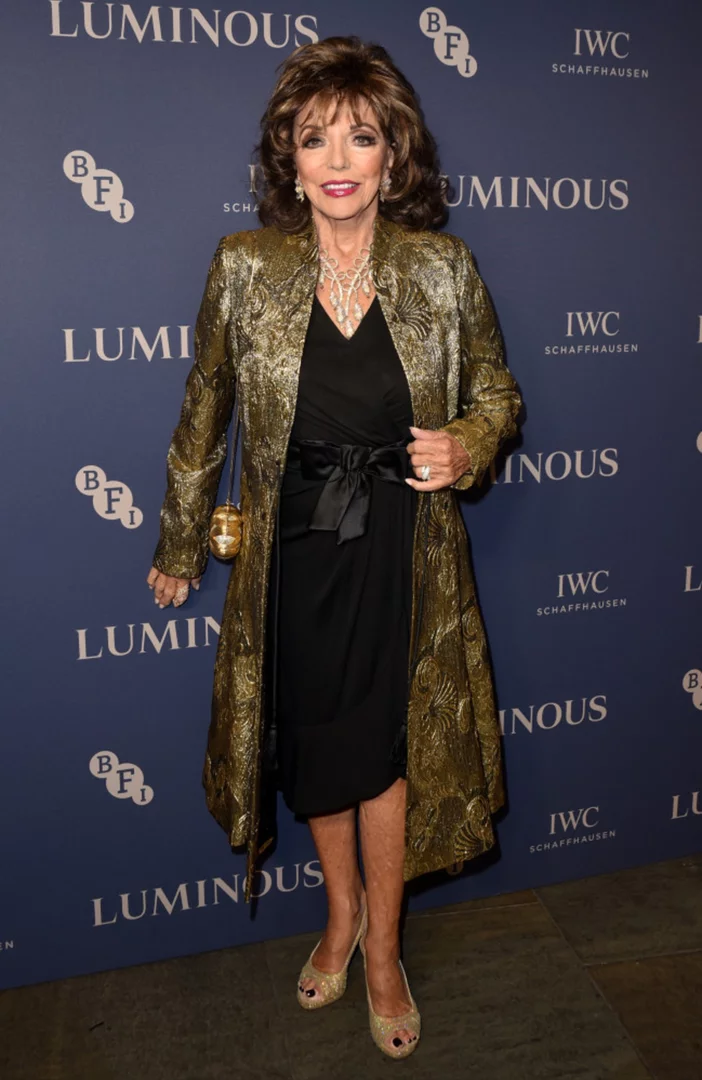
Dame Joan Collins will play Wallis Simpson in biopic
Dame Joan Collins has revealed she is hoping to play the late Wallis Simpson in a new biopic about the last 15 years old her life.
1970-01-01 08:00

NBA rumors: Trail Blazers massive demands for Damian Lillard trade revealed
Damian Lillard reportedly wants to be traded to the Miami Heat. Here is what the Portland Trail Blazers are seeking in a potential trade for their star.Trading away a franchise superstar is an unenviable situation for any team, regardless of sport. The Portland Trail Blazers, despite their initi...
1970-01-01 08:00
